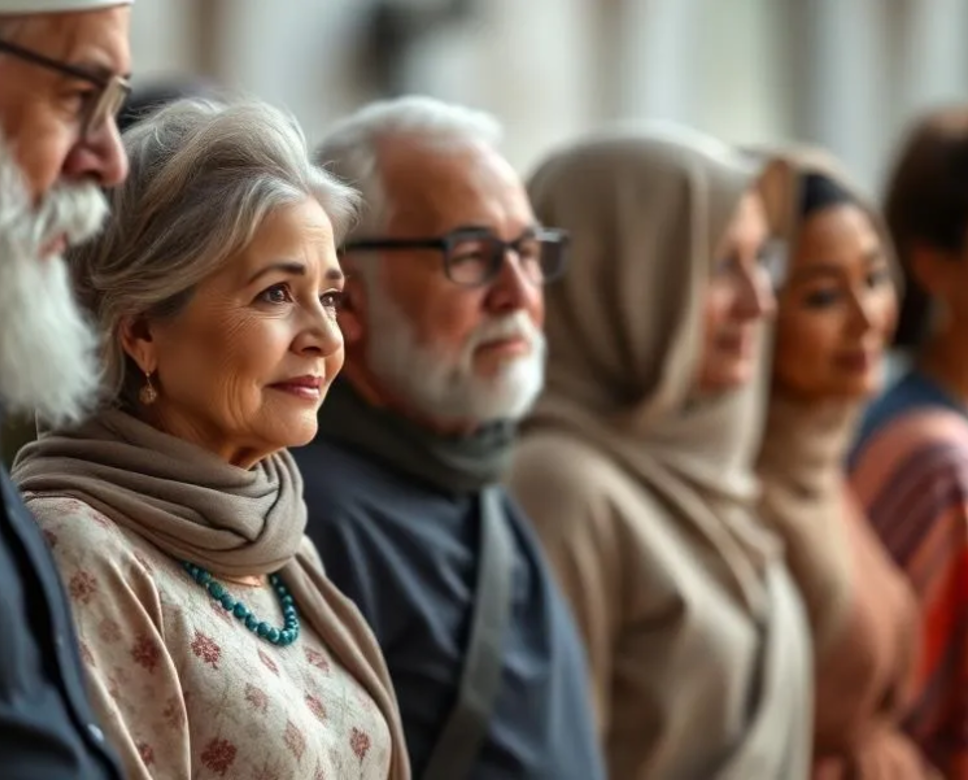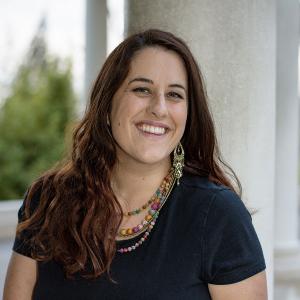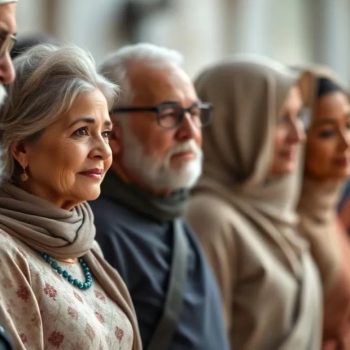A friend of mine, a federal employee, recently shared about how the government rollback of DEI policies in her team was going. The responses in the comments section were all over the place, representing how the Church is divided over this. Over the past few months we’ve been left hanging questioning how Christians should respond to DEI initiatives.
Different Views on Diversity Equity, and Inclusion Policies (DEI)
Politically conservative groups and many Republican evangelicals view Diversity, Equity, and Inclusion policies as unfair. One of these driving groups, The National Center of Research, communicates that DEI policies are harmful, dividing Americans. They claim that DEI principles promote equal outcome, not opportunity. I recently polled my readers at AverageAdvocate.com about this and one of the beliefs about DEI that came up was it caused people who weren’t qualified for positions to receive them.
On the other hand, Democrats, progressive groups, those people of faith who take a stronger stance against Christian Nationalism generally see DEI initiatives as valuable and more just. This perspective owns that DEI initiatives help people who are typically oppressed be seen/heard, gain protections against discrimination, and get back to the same starting ground as those with more established privilege.
Ultimately, there is a wide swathe of Christians are celebrating the dismantling of DEI initiatives in our government, while others are deeply disturbed, feeling that it reduces the flourishing of people and is contrary to the way of Christ.
Are we at an impasse? Are we able to find a common way of belief about diversity, equity, and inclusion? How should we, as Christians, respond to DEI initiatives changing under the new administration?
First, let’s examine any scriptures that might be related, then let’s talk about what the response to DEI can lead us.
Diversity
A recurring theme in Scripture is that Christianity is for all people—without requiring cultural assimilation. Each tribe, language, and gender brings something meaningful to the table.
How do we know this? Because in heaven, the great celebration of God includes people worshiping in their own ways, in their own languages. It is, in many ways, the reversal of the Tower of Babel. Every nation and tribe is invited into the Kingdom equally.
And it isn’t just people of different ethnicities–It also honors the diversity of women and eunuchs, all who are one in Christ. And most importantly, the New Testament addresses the beauty of diversity of gifts and callings of people in the Body of Christ. Without these, it is clear we can’t come to the full maturity in Jesus (Ephesians 4). We need differences to thrive and be all God has his Church to be.
What is Equity?
Before we get into equity, check out last week’s post, delving deep into the Bible in an overview of equality through the scriptures. With this as a baseline–we are all created in God’s image as equal–now we can consider equity.
These two terms are very similar, but equity’s definition has a specific implication you can see below defined by Merriam-Webster:
“The idea that sometimes sameness of treatment (equality) does not result in proportional fairness (equity) is one way that these words are distinguished from each other, even in similar contexts. Sometimes this distinction is explained with an illustration showing people of different heights using boxes to stand on in order to see over a fence; equality is if all the boxes are identical, but equity is if the boxes are different sizes to permit the people, regardless of their height, the ability to see over the fence.”

Here’s a helpful way to understand equity:
Do you believe each ethnicity and skin color be allowed in the same baseball game? In the United States, most of us would say yes to this today, but seventy years ago there wasn’t a common consensus on this, and racial segregation was battled fiercely. But it goes beyond race. Should women be there at the game? Nursing mothers? Should there be a way everyone can access the baseball game, even if you are on crutches or in a wheelchair? Many of us would still say yes to these policies.
Now should everyone’s trip to the baseball game be paid for by the government? What about kids, for a field trip? This is usually where opinions diverge, but I really don’t think they diverge as much as we might think they do.
Most people promoting DEI aren’t actually promoting everyone who is a minority gets everything paid for by the government, nor that they don’t do anywork, aren’t qualified for their jobs, etc… Despite how black and white the media presents it, DEI isn’t an all or nothing standard, there is a lot of overlap in shared beliefs about what is good, just, and fair on each side. As Christians, it is important that we recognize that there are some DEI policies we all greatly appreciate and value, otherwise we get sucked into a simplified debate.
Equity in Scripture
The hard part is determining where these opinions diverge and what they look like in policy as we determine what “fair” looks like. And it is important that scripture, when talking about justice, the focus is a wide-lens community focus. The theme from Old Testament, first through Israel, to the New Testament, then through Jesus and his followers, is the blessing and flourishing of all people. The primary language about this is restoration, reconciliation, and the restoration of shalom, a peace that goes beyond our personal hearts, but outward to society.
I’ve been reading the extensive and intense laws of the Torah, today specifically Deuteronomy 24-27. There are laws covering health care, food practices, individual and family sin, to just war practices, community holidays, economics, and how the justice system works. But frequently, even the context surrounding the personal laws are so the “land will not be cursed.” The same happens with the ways people are supposed to respond to their community–despite the fact someone is a foreigner, they still receive the due justice process. Despite the fact that someone should have known better, they still get a loan. Despite the fact that they didn’t work for the profit of the harvest, the marginalized person is still allowed to take a meal from the wealthy person’s house. Although there are a fair number of practices that do not lend to equity, there are a fair number that do.
Although we don’t follow the Old Testament laws, we don’t live in the ancient middle east, nor are we trying to build a theocracy, there are principles we can see in how God views justice that can affect how we practice it now. And in this case, we see that often the greater flourishing of all people was put over individual rights or the profit of business.
What about in the New Testament? There are a few examples of equity practices to point out. Peter trying to eat a racially segregated meal in a segregated environment was publicly called out by Paul (Galatians 2:11-14). James addressed favoritism based on appearance and socio-economic status, something that some DEI policies also work to prevent to remove biases against names and appearances (James 2:1-9). There were the women church leaders, qualified by God for their callings despite the patriarchal culture. Then there are the letters to the Christians about the Roman household codes, switching them to bring about a greater equality and rights in these systems through his revision of the legal policies they lived under (Ephesians 5:22–6:9; Colossians 3:18–4:1).
And although this wasn’t a policy of the Church, Paul appeals to Philemon to welcome Onesimus back—not just as a slave, but as a beloved brother in Christ in an attempt at reconciliation despite the power-difference in their relationship. Paul even offers to repay any debt Onesimus might owe, and seems to urge Philemon to grant Onesimus freedom. Is this equal opportunity or equal outcome?
Inclusion in Scripture
Do we see inclusion practiced in scripture? Unlike the other points, in the Old Testament, inclusion is anything but the norm. There are only a few outliers, like allowing foreigners to join the assembly of Israel in following the laws, or the Spirit of God falling on unsuspecting people that was shocking. Then there were a few women leaders, like Miriam, Deborah and Huldah in positions of extreme influence in patriarchal Israel.
We really begin seeing the practice of inclusion beginning with Jesus, in culturally radical ways. He brought in the sick, disabled, women, the eunuch (outside a gender norm), prostitutes (likely sexually exploited), the corrupt finance guys, the single person, the married person, the woman with five husbands, the unclean bleeding woman, demon possessed and maybe those with mental illnesses. He also valued the “least of these,” a statement Jesus made in push back to those who didn’t think children should be on the scene, wanting them to be included. Even though it wasn’t “the time of the gentiles yet,” he still welcomed a foreign woman, welcoming her in a tit-a-tat that seems racist on the surface until you understand the context, honoring her faith by the end of the encounter.
There is no way to get around it, the Kingdom of God is available for all and Jesus wanted to make sure this was as plain as day.
Who Do We Include in the Church?
Sometimes Jesus intervened with miraculous healing. But other times he accepted people where they were at; they were just as included despite what they couldn’t change.
But Christians often point out that frequently Jesus would conclude an encounter with, “Good job having faith, you’re healed or forgiven, but now stop sinning.” They say that inclusion is based on life-change. I understand this perspective, because when we do begin following Jesus, we change. But it is easy to get this flip-flopped, expecting new believers to change in specific ways before they are welcomed into the faith community, looking for external factors to determine whether they are “saved” or not. Then Christians continue onward by demanding a specific timeline of what must change and by when. Yes, the Church is actually told to judge among themselves, but there are many scriptural caveats to how this is done so that it is actually helpful. The result is that creating a welcoming community that allows people to change on God’s timeline is rare in the Church.
It is helpful to remember that Jesus pursued people before they changed and then continued to accept all of his followers despite the fact that they continued to screw-up.
Inclusion in Church Leadership
In modern terms, inclusion is often used not to just talk about the value of different types of people, but whether they are welcome in different spaces with everything they have to give. This becomes one of the primary reasons I see Christians push back to the idea of “inclusion,” because they don’t want people who are included in Church leadership and ministry who are viewed to be sinning.
First, let’s go back again to look at who is called and ministering in the early church? Those with influence and God’s Spirit upon them included men, women, young, old, a eunuch, single people, married, slave, free, people of all ethnicities, of all languages, appearances, socio-economic backgrounds, and someone with a “thorn in their flesh.” Inclusion isn’t based on who a person is or isn’t. Besides, as God is the one who gives gifts, not the Church, we have to worry about controlling this.
The only thing we have responsibility for is to appoint leaders qualified, who are determined by who they are, or their backgrounds, but by a godly life, trustworthiness, and the maturity to act like spiritual parents. Although in the Church we might see wide variations in beliefs about this–and typically very strong ones about sexuality or abuses of power–ultimately, that is the only place exclusion is seen in New Testament scripture.

What About DEI Outside the Church?
Maybe you’re thinking, “That’s great Elisa, you just pointed out how DEI looked in Jesus ministry and in the early church. But what does that have to do with what policies we support in today’s businesses, governme
nt, and other systems of leadership?” And that is a great question!
Christians today need to be aware of how our forefathers and foremothers–to be clear, not of the American country, but in our faith–practiced DEI type practices, even if they didn’t use the same terms. We might not be able to take policies from this, but the above helps us understand what was valued and prioritized. It helps us see how the Kingdom of God can be lived out in our lives.
It’s helpful to be reminded that the terms the world uses don’t have to mean the same thing the world means by them. I found myself drawn to this quote in a newsletter from teacher, Jo Saxton, that I read about the Christian response to DEI:
“What kind of world is being created when definitions are hijacked and distorted and now diversity is a problem, when equity is a problem, when inclusion is a problem?…Since God is the One who created and commissioned humanity, of course there will be women, indeed people of every ethnicity, from every nation, tribe and tongue who are called, anointed, gifted, qualified for roles at every level.” – Jo Saxton
DEI Reflection Questions
Although we might have an idea of how the Church might live out DEI, there is no clear Biblical answer to what DEI policy should look like in our other systems. What Christians can do, though, is ask these questions, inviting the Spirit of God to lead them, as they approach the world’s systems:
- Am I considering DEI through a black and white lens or am I looking at the terms of specific policies?
- Is there research from various sources that point to whether a specific policy empowers us as a diverse group of humans to better flourish, living together with more peace and justice amongst us?
- Do the policies I support allow, at minimum, for the vulnerable to be protected and have equal opportunity?
- If it encourages our overall well-being and peace as people, will I be willing to support policies that call for equal outcome, too?
- Does a particular policy value my fellow human as a person made in God’s image with basic rights?
- Are there areas I am biased and showing favoritism with the policies I support?
- Am I considering the areas where people are claiming discrimination, and reexamining that policy, or just assuming it isn’t a valid claim?
- Are there areas of influence I hold that I can leverage to ensure that diversity is valued in the way God values it?
- Are there areas of influence I hold that I can leverage to ensure that equity is practiced, at least as I see it in scripture?
- Are there areas of influence I hold that I can leverage to ensure that I welcome and include people like Jesus did?
In my very first article here at Patheos, I made the case that Christians are called to care about justice more than anyone else. This isn’t to say that others—governments, institutions, or other religions—aren’t concerned with justice, but for us, it’s a core part of our calling, regardless of what policies are in place.
As always, this usually means we don’t necessarily align with either progressive or conservative policies. No matter what the government does or doesn’t do, our response is to honor God.
So, what are Christians called to do when it comes to diversity, equity, and inclusion? I can’t answer that for you, but I hope this article has equipped you to make decisions about the DEI policies you support.


















